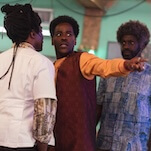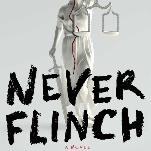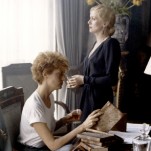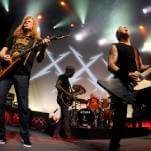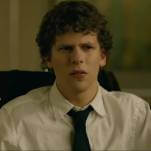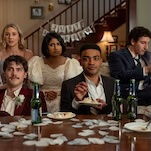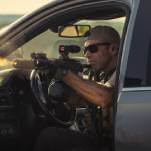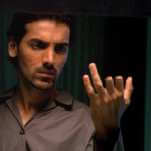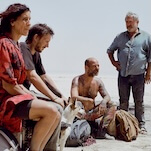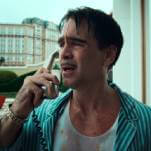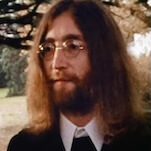R.I.P. Captain Beefheart

Captain Beefheart, the avant-garde rock great and visual artist whose real name was Don Van Vliet, has died of complications from multiple sclerosis, according to Entertainment Weekly. He was 69 years old.
Van Vliet was both a collaborator and competitor of Frank Zappa, whom he befriended as a teenager—the two bonded over a shared love of Chicago blues and R&B—and recorded early demos with before breaking out on his own with the first iteration of The Magic Band in 1965. Like Zappa’s Mothers Of Invention, it similarly blended elements of psychedelic rock, blues, free jazz, and experimental noise into something new and surreal, an inversion of everything that rock ’n’ roll supposedly stood for. But whereas Zappa emphasized technical precision, Captain Beefheart was primal and spluttering, a seeming cacophony of disjointed guitar, off-kilter rhythms, and atonal harmonica, saxophone, and clarinet honk, overlaid with Van Vliet’s gruff Howlin’ Wolf imitation and occasional foray into gibbering falsetto. It was a gloriously abstract mess, a seemingly randomly assembled collage of ideas that was wild and liberating while also being claustrophobic and intimidating.
The idea that it was a “mess,” of course, is completely misleading: In truth, Van Vliet was one of rock’s strictest taskmasters, forcing his band to live in a communal house with blacked-out windows for eight months while recording its landmark third album Trout Mask Replica, and subjecting them to cruel emotional punishment for days at a time, like a cult leader attempting to brainwash his followers—a technique Van Vliet openly spoke about studying. However insane his methods (and there’s been plenty written on them), the result was one of the most lauded, influential, scrutinized, baffling albums ever made.
Even with decades of punk, industrial, and noise-rock between its 1969 release and now, Trout Mask Replica remains one of the most subversive things ever committed to record, a giant raspberry to convention that’s fascinating in its willingness to detour into complete indecipherability and ugliness. As John Peel once said, “If there has been anything in the history of popular music which could be described as a work of art in a way that people who are involved in other areas of art would understand, then Trout Mask Replica is probably that work.” It’s nearly impossible to listen to it without it evoking some sort of extreme reaction—and that, after all, is the best kind of art.


















